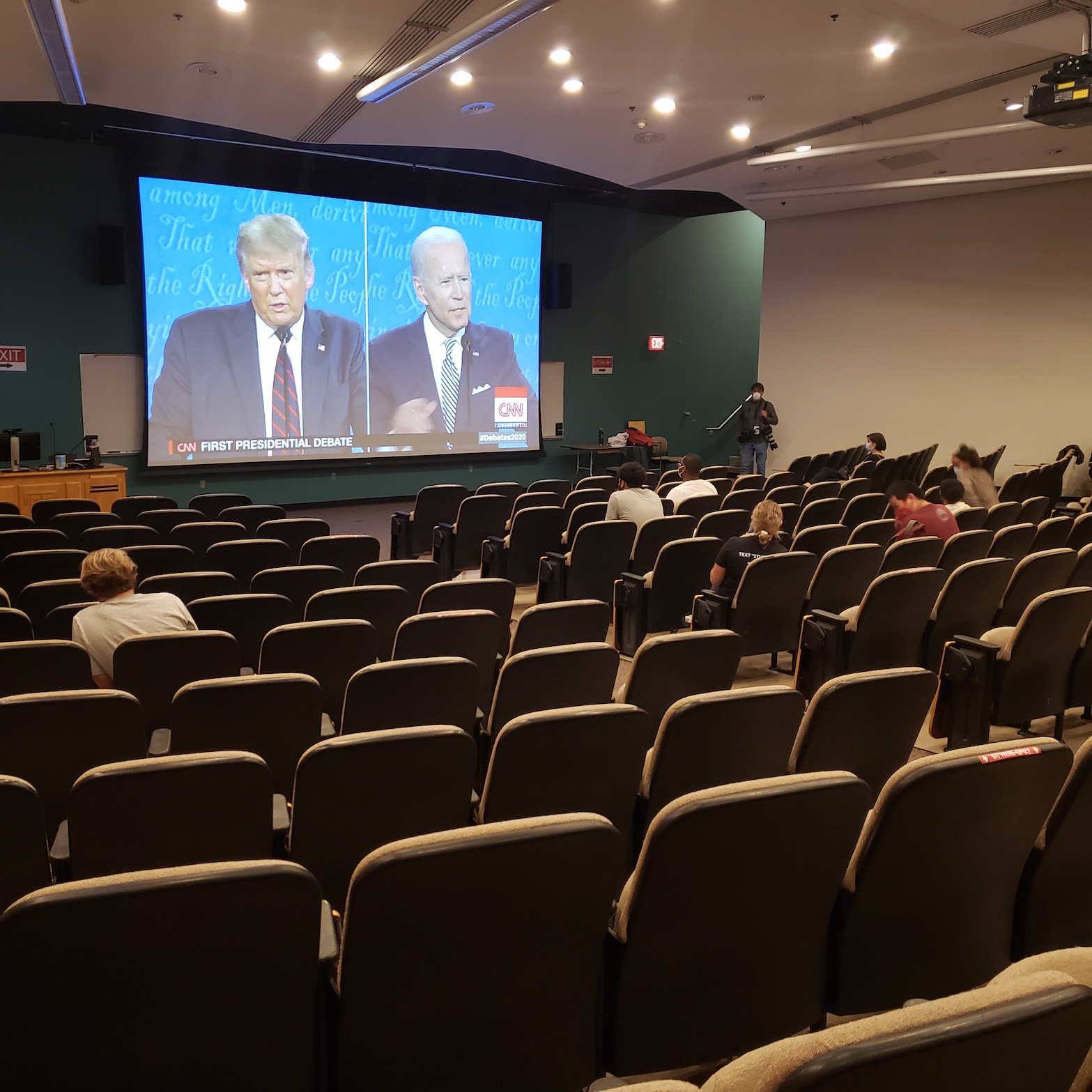On Tuesday night, members of the Temple University community waited in anticipation in the university’s Anderson Hall ahead of the first presidential debate of the 2020 United States presidential election cycle. They were participants in a debate watch party hosted by David Mindich, chair of the Journalism Department at Klein College of Media and Communication. The masked attendees gathered in Anderson’s largest lecture hall, which has enough seating to accommodate social distancing guidelines. Mindich, who started hosting presidential debate watch parties in 2000 during the George W. Bush and Al Gore election cycle, wanted to keep the tradition going strong despite the challenges that have arisen due to the COVID-19 pandemic.
The event began with opening remarks from Mindich, who asked students to give their pre-debate predictions and provided them with tips on how to watch the debate between incumbent president Donald Trump and former vice president Joseph Biden with a critical eye. Although many of the attendees of the watch party were journalism students, it was open to any student or member of the Temple community who wanted to stop by.
“There are students from all over Klein but also students from outside of Klein. It’s so exciting that they came out and nobody had extra credit. It’s just people came out because they wanted to be a part of the democratic process, which is great,” Mindich said.
Mindich made sure to include live polling and virtual chats during the debate and also invited members of the local press, including Philadelphia’s 6ABC Action News and Temple University Television, to speak with attendees of the debate watch party.
Although the presence of the press was exciting, Alissa Clausell, a freshman journalism major, was most excited to talk with other students about the event. “I thought it was a really great opportunity to be able to watch this amongst my peers and have a discussion,” she said. “And also it was something I was going to watch anyways, so to be able to do it in person I thought was really cool and a good opportunity.”
Yu Chen, a sophomore journalism major, said that this year’s presidential election will be his first time voting for a U.S. president. Chen became a U.S. citizen this year and was hopeful that the candidates would speak about immigration policy — specifically Deferred Action for Childhood Arrivals (DACA) — and their vision for U.S.-China relations. He was excited to safely interact with others at the watch party and talk about the issues he cared about, even if the candidates did not.
“As a journalism major I just wanna talk to people,” he said. “I don’t care if they’re Trump supporters, or Biden supporters. I just wanna see what's their general idea. I put my press pass away because I just wanna listen to them instead of interviewing them.”
But despite the exchange of ideas between attendees of the watch party, it was hard for students not to comment on the unusually combative tone of the debate between the two candidates. Jarred Rosar, a freshman journalism student who came to the event with a friend, was plugged into the others’ opinions on the debate via Twitter and shared their frustration about the way the debate unfolded.
“For the most part it seems just that everyone’s kind of [going] crazy at the style of the debate,” he said. “Not much on actually the content — I think it’s more the way it’s presented speaks for itself.”
Many at the event were shocked by the controversial debate and Mindich closed out by asking attendees to think about the potential headlines that would be produced by journalists post-debate. Although the attendees’ answers were not very positive, the opportunity for them to share their thoughts in real-time amongst their peers was a welcome substitute to the virtual discussion spaces that have become the norm since the onset of the pandemic.

